- wikipedia.sk - Emotional psychology
- detskechoroby.sk - separation anxiety
- kapitula.sk - developmental psychology
Separation anxiety in children: how to deal with it and what attitude should a parent take?
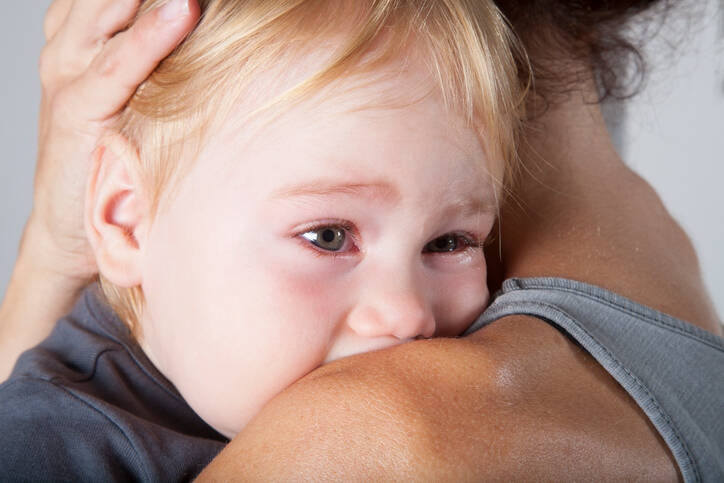
Every human being goes through certain developmental periods during life. These phases have their own specific characteristics. In infancy, separation anxiety is one of them. It appears at the time when the child begins to form attachments to other people. The closest person is usually the mother or another close person, so the child wants to be in constant contact with her. The absence of this person triggers a natural state of anxiety. This is accompanied by insecurity and fear of not returning. It sometimes manifests itself in hysterical crying.
Article content
What does separation anxiety mean in psychology?
Separation anxiety is a perfectly natural anxiety state related to the development of the child and his perception of people and objects (the beginning of changes in their perception). Until the stage of separation anxiety, children live as if in the present. They cannot perceive time, they live in the moment.
A good example is when a baby is playing with a toy (living for the moment) and does not perceive that the mother has moved away (left the crib). It is not aware of the permanence or impermanence of objects. It does not fear that they will disappear forever. However, this begins to change and manifest itself during this period.
- Separation means the separation, detachment or separation of an individual
- Anxiety is defined in psychology as a negative experience or emotional state resulting from a stressful situation (feeling threatened, deprived, insecure)
Developmental periods of separation anxiety
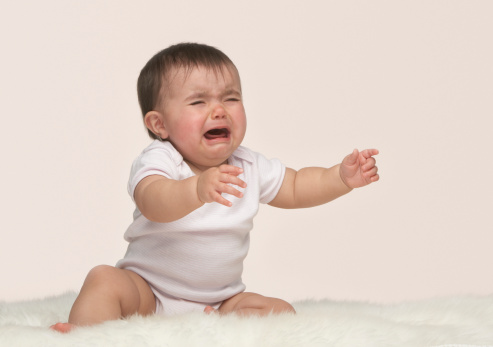
This anxiety state does not arise in every child at exactly the same time. Even the opinions of experts differ slightly. However, this is not due to the ignorance of psychologists and doctors, but to the uniqueness of man as a being.
Each person or little person is unique, original. He or she differs externally and internally (internal experience, perception of the external environment).
The period of separation anxiety generally appears around the 6th month of life until the 18th month. Of course, it can start a little earlier or even later. In this time frame, it not only starts but also spontaneously recedes after a few weeks as quickly as it came. The retreat period should not be longer than three months.
Causes of separation anxiety
Around the 5th to 7th month, children come to realize that other persons and inanimate objects exist whether they are in sight or not. The period of living for the present moment fades away and the phase of time awareness sets in. They also begin to realize the permanence of the object despite not seeing it right now.
For the child, this also means becoming aware of a loved one and her existence when she is not in his field of vision. The mother is a kind of security and stability for him. Her absence means tension, uncertainty and fear of whether he will ever see her again.
The child is unaware of the fact that she has not really left him, but has just run away.
Manifestations of separation anxiety in children
The reaction to the absence of a loved one is often hysterical. This is perfectly normal. Ask yourself how you would react if you lost all your security in life?
Would this feeling be pleasant for you, or would it bring you to the brink of despair and fear of the future?
Even an adult is capable of doing anything to preserve the certainties in life. A child does the same. He tries not to lose his mother at any cost, and therefore the reaction to her leaving (losing sight of her) is sometimes "exaggerated".
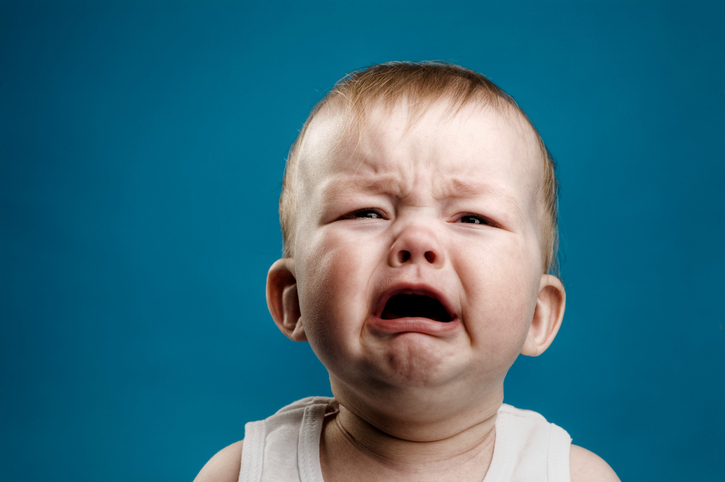
The child's reaction to the mother's departure:
- Anxiety
- insecurity
- fear of losing security (separation from the mother)
- despair and anger
- holding the mother's hand (not wanting to let go)
- running (crawling) after the mother
- looking back (looking for mother)
- throwing oneself on the ground
- hitting (scratching)
- stiffness
- hysterical crying and screaming
- choking during sedentary crying
- crying out for the mother
- difficulty in calming the baby
The correct attitude of the parent during periods of separation anxiety
It is necessary to understand that this period is stressful for the child. Therefore, it is not right to ignore it. On the contrary - your little one requires increased attention, which he should also receive.
Interesting:
It is necessary to be especially careful if the child has a sibling. Manifestations of aggression during separation anxiety can be directed at him. Therefore, it is important to ensure that no serious injury occurs. Also, very often there is jealousy of the little brother or sister and forcing the attention of the mother, to which he was accustomed.
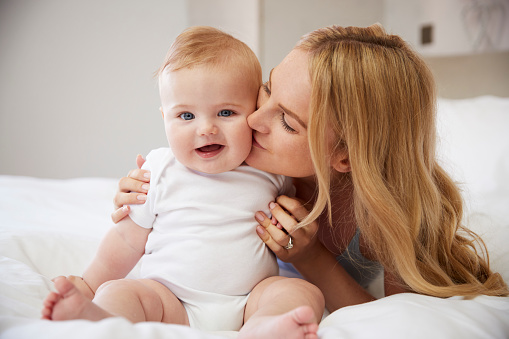
Principles on how to overcome separation anxiety with minimal stress:
- Be as close to the baby as possible during this period.
- show affection by cuddling, kissing or otherwise
- Leave as little as possible if you don't have to (during this phase)
- if possible, take the baby with you
- if you have to run away, try to explain this to the baby
- don't go behind the child's back when he or she can't see you
- cultivate trust, don't promise anything you can't deliver
- if he is afraid of particular people, minimise his contact with them during this period
- don't keep your child away from people completely, for example contact with other children is appropriate
- gradually teach the child to be independent
Sick separation anxiety
Separation anxiety can also occur in the pre-school period. It is more pronounced in children who have not been around a large group before, i.e. are not used to more people. Of course, this is normal. The child needs time to adapt. The problem arises if the anxiety persists.
Separation anxiety can be a pathological phenomenon in certain cases. Of course, it is not separation anxiety, which is described above and is part of the child's natural development.
Illness anxiety appears uncharacteristically in older children at pre-school age and persists for a longer period of time. By this time, children should already understand human relationships and should regard the temporary absence of the mother as normal.
They should understand the temporary separation (staying in the nursery). At the same time, they should be aware that the mother will return after work.
If the child does not understand this for a long time and is unnaturally attached to the mother even at this age, this is so-called separation anxiety disorder. This problem already belongs to a specialist. It can no longer be considered normal.
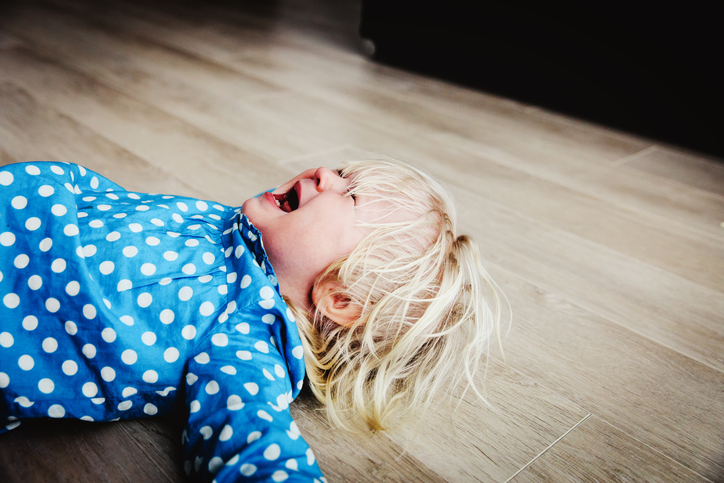
Manifestations of separation anxiety disorder:
- Anxiety at an atypical age
- excessive insecurity
- unjustified fear of separation from the mother
- running away and running after the mother
- reluctance to go to kindergarten (malingering, lying)
- despair, anger
- aggression towards others, sometimes towards oneself
- non-acceptance of strangers
- throwing themselves on the ground
- self-harming (scratching, slapping, head banging)
- hysterical crying and screaming lasting for hours
- difficulty falling asleep
- insomnia (checking on the mother)
- bad dreams to nightmares
- bedwetting (especially at night)
Every mother knows that the first day of kindergarten is difficult for a child to bear. Some children adapt more quickly, others take longer. Only a small percentage of them enjoy it. However, the symptoms of separation anxiety disorder are intense and disproportionate. It is not difficult to see the boundary between a normal reaction to an unfamiliar environment and a pathological condition.
Important:
If the child has started to protest after he has been attending the nursery for some time, other reasons and causes of anxiety need to be thought of. These may include teasing of other children, bullying, inappropriate behaviour of the teacher towards the child, and in the worst cases physical punishment.
In any case, anxiety is an unpleasant, negative experience for the child. At this time, it should be the mother who is close and supportive. If you feel that your child's reaction is unnatural, seek help from a psychologist.
Interesting resources
Related










